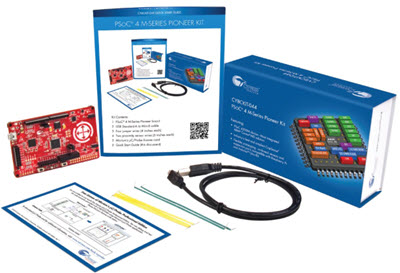|
For novel ideas about building embedded systems (both hardware and firmware), join the 35,000 engineers who subscribe to The Embedded Muse, a free biweekly newsletter. The Muse has no hype and no vendor PR. Click here to subscribe.
|
My wife needs an intervention.
She's the sort who never slows down. She is always creating some form of art. The house is overflowing with her stained glass creations. Everything is decorated with mosaics or her paintings. Even rocks in the yard are mosaic victims.
But a few years ago she discovered beading, and, well, let's just say those beaders are nuts. Her bead society is full of similarly-minded women (to a first approximation, all women). They can't go for more than a few microseconds without stringing bits of shiny glass or other materials together. Some make their own beads, an effort that seems deliriously obsessive to me. I'm afraid my welding torch will get co-opted for that soon. The bead shows are packed. One of her friends spent a kilobuck on beads at a single show recently.
Actually, I admire her dedication, but frequently josh her about it. In fact, I would be nearly as bad with my hobbies given more time.
In Hobbies: Leisure and the Culture of Work in American, author Steven Gelber suggests that the word "hobby" derives from "hobby-horse," and the notion of having pet projects was considered silly and even a dangerous obsession. Around 1880 American views started to shift as necessary crafts were reborn into avocations practiced primarily for fun. But it's clear that in Europe science was practiced primarily as a hobby in much earlier times, though probably only by the wealthy.
It's truly impressive how many people in this country so passionately pursue their avocations. While the media complains about couch potatoes the truth is many of us are consumed with our passions and fill the spare hours doing something whose profit is mainly happiness.
While in India recently I was struck by a comment made by a very smart guy who grew up there but moved to the States many years ago. He said that Indians don't have hobbies, and lamented that a lot of tech talent is missed as a result. I have no data on the accuracy of that statement - Googling for information about hobbies in India I got 119 million hits, and there's even an indiahobbies.com web site. But one would think hobbies are the province of those who have the luxury of time and some disposable income, which are probably in short supply in poor countries.
If he is right and hobbies are uncommon in India or other locales, those nations are missing a great source of talent. For many of us our hobbies led to our vocations, as I mentioned in a piece about ham radio (http://www.eetimes.com/electronics-blogs/break-points/4370279/Ham-radio-today) a couple of weeks ago.
My interest in embedded systems stem entirely from my hobbies, as I was consumed from an early age with electronics. I know a lot of other engineers who can make the same claim. Some of the very best analog designers I know mastered their craft building stuff long before college. Remember legendary analog engineer Jim Williams? He worked in a TV shop in high school to learn more about electronics, and throughout his career maintained a lab at home to pursue that passion.
What about you? Are you consumed by some avocation? And did that get you into the embedded world? Do you have a hobby web site you'd like to post?
(Here's some info about my hobbies: www.ganssle.com/jack).
Published March 21, 2012


